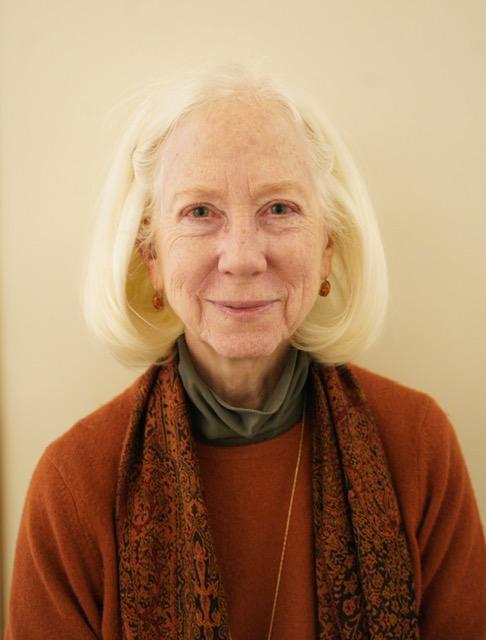Peggy F. Barlett

Peggy F. Barlett
Anthropology Faculty Affiliate
Contact:
Peggy Barlett is an economic anthropologist specializing in farmer decision-making and agricultural development, both in Latin America and in the US. Her later career focused on the climate crisis, sustainability, and cultural transformation in higher education, focusing first on curriculum change and sustainable food systems at Emory University, and then helping faculty innovate at other institutions, through the Association for the Advancement of Sustainability in Higher Education.
Peggy Barlett continues an interest in agricultural systems and rural development, based on her early work in economic anthropology in Costa Rica and Ecuador, and then on the farm crisis of the 1980s and 1990s in the US South. Her later career focused on sustainability and cultural transformation in response to the climate crisis. She continues an interest in how institutions such as colleges and universities can lead, with a particular focus on sustainable food systems and faculty development to infuse sustainability across the curriculum. Barlett has seen that place- based connections with the natural world are an important component of awakening environmental and social justice change. She continues to work with faculty leaders on US and international campuses to develop sustainability-focused curricula through the Association for
the Advancement of Sustainability in Higher Education. She was past president of the Society for Economic Anthropology and served on the National Academies’ Board on Agriculture and Natural Resources. She is currently Goodrich C. White Professor Emerita of Anthropology at Emory University.
- Agricultural development and farmer decision making, rural wellbeing: Costa Rica, Guanacaste Province (968); Otavalo Valley, Ecuador (1970); Costa Rica, Puriscal Canton (1972-73, 1977, 1980).
- Adaptive strategies of farmers during the 1980s farm crisis; implications for gender roles and marital models: Dodge County, Georgia, USA (1982-83, 1987-89).
- Strategies for cultural transformation around the climate crisis and sustainability in higher education (1999-2020).
Her work has been supported by the National Institutes of Mental Health, the National Science Foundation, and the National Geographic Society.
PUBLICATIONS: BOOKS
1980 (Editor) Agricultural Decision Making: Anthropological Contributions to Rural Development. New York: Academic Press.
1982 Agricultural Choice and Change: Decision Making in a Costa Rican Community. New Brunswick, NJ: Rutgers University Press.
1993 American Dreams, Rural Realities: Family Farms in Crisis. Chapel Hill: University of North Carolina Press. Co-winner of the 1995 James Mooney Award, Southern Anthropological Society.
2004 (Editor, with Geoffrey W. Chase) Sustainability on Campus: Stories and Strategies for Change. Cambridge: The MIT Press.
2005 (Editor) Urban Place: Reconnecting with the Natural World. Cambridge, MA: The MIT Press.
2013 (Editor, with Geoffrey W. Chase) Sustainability in Higher Education: Stories and Strategies for Transformation. Cambridge: The MIT Press.
SELECTED ARTICLES: REFEREED JOURNALS
1976 Labor Efficiency and the Mechanism of Agricultural Evolution. Journal of Anthropological Research 32(2):124140.
1977 The Structure of Decision Making in Paso. American Ethnologist 4(2):285307.
1980a Adaptive Strategies in Peasant Agricultural Production. Annual Review of Anthropology 9:545573.
1980b Reciprocity and the San Juan Fiesta. Journal of Anthropological Research 36(1):116130.
1984 Microdynamics of Debt, Drought, and Default. American Journal of Agricultural Economics 66(5):836843.
1985 Agricultural Development and the Quality of Life: An Anthropological View (with Peter J. Brown). Agriculture and Human Values II (2):2835.
1986a Profile of Farm Workers in a Georgia County. Rural Sociology 51(l):7896.
1986b PartTime Farming: Saving the Farm or Saving the Lifestyle? Rural Sociology 51(3):289313.
1987 Industrial Agriculture in Evolutionary Perspective. Cultural Anthropology 2(1):137154.
1989 The Persistence of Family Farms in United States Agriculture. (with Nola Reinhardt) Sociologia Ruralis XXIX (3/4):203225.
1990 Qualitative Methods in Rural Studies: Basic Principles. The Rural Sociologist 10(2):314.
2009 Long-term Impacts of Faculty Development Programs: The Experience of TELI and Piedmont (with Ann Rappaport). College Teaching 57(2):1-8.
2009 Reason and Reenchantment in Cultural Change: Sustainability and Higher Education. Current Anthropology 49(6):1077-1098).
2011 Campus Sustainable Food Projects: Critique and Engagement. American Anthropologist 113(1):101-115.
2017 Campus Alternative Food Projects and Food Service Realities: Alternative Strategies. Human Organization 76(3):189-203.
SELECTED OTHER PUBLICATIONS:
1985 Poverty in Costa Rica: A Conceptual Model (with Polly Harrison). In Social Impact Analysis and Development Planning in the Third World. William Derman and Scott Whiteford, eds. Pp. 141- 159. Boulder, CO: Westview Press.
1988 Reciprocidad y la fiesta de San Juan de Otavalo. Allpanchis (Cuzco, Peru) 32: 73-108. Available online: https://revistas.ucsp.edu.pe/index.php/Allpanchis/article/view/952.
1989a Introduction: Dimensions and Dilemmas of Householding. In, The Household Economy: Reconsidering the Domestic Mode of Production. Richard Wilk, ed. Pp. 310. Boulder, CO: Westview Press.
1989b Industrial Agriculture. In Economic Anthropology. Stuart Plattner, ed. Pp. 253291. Stanford, CA: Stanford University Press.
1991 Status Aspirations and Lifestyle Influences on Farm Survival. Research in Rural Sociology and Development Vol 5: Household Survival Strategies. Daniel Clay and Harry Schwarzweller, eds. Pp. 17390. Greenwich, CT: JAI Press.
2004 No Longer Waiting for Someone Else to Do It: A Tale of Reluctant Leadership. In, Sustainability on Campus: Stories and Strategies for Change. Peggy F. Barlett and Geoffrey W. Chase, eds. Pp. 67-87. Cambridge: The MIT Press.
2005 Reconnecting with Place: Faculty and the Piedmont Project at Emory University. In, Urban Place, Reconnecting with the Natural World. Peggy Barlett, ed. Pp. 39-60. Cambridge, MA: The MIT Press.
2006 Three Visions of Masculine Success on American Farms. In, Country Boys: Masculinity and Rural Life. Hugh Campbell, Michael Mayerfeld Bell, and Margaret Finney, eds. Pp.47-66. University Park, PA: Pennsylvania State University Press.
2012 Curriculum Innovation for Sustainability: the Piedmont/Ponderosa Model of Faculty Development (with Geoffrey W. Chase). Liberal Education 98(4):14-21.
Ph.D. Columbia University, Department of Anthropology, Conrad Arensberg, advisor 1969-75
B.A. Grinnell College, Anthropology 1965-69

